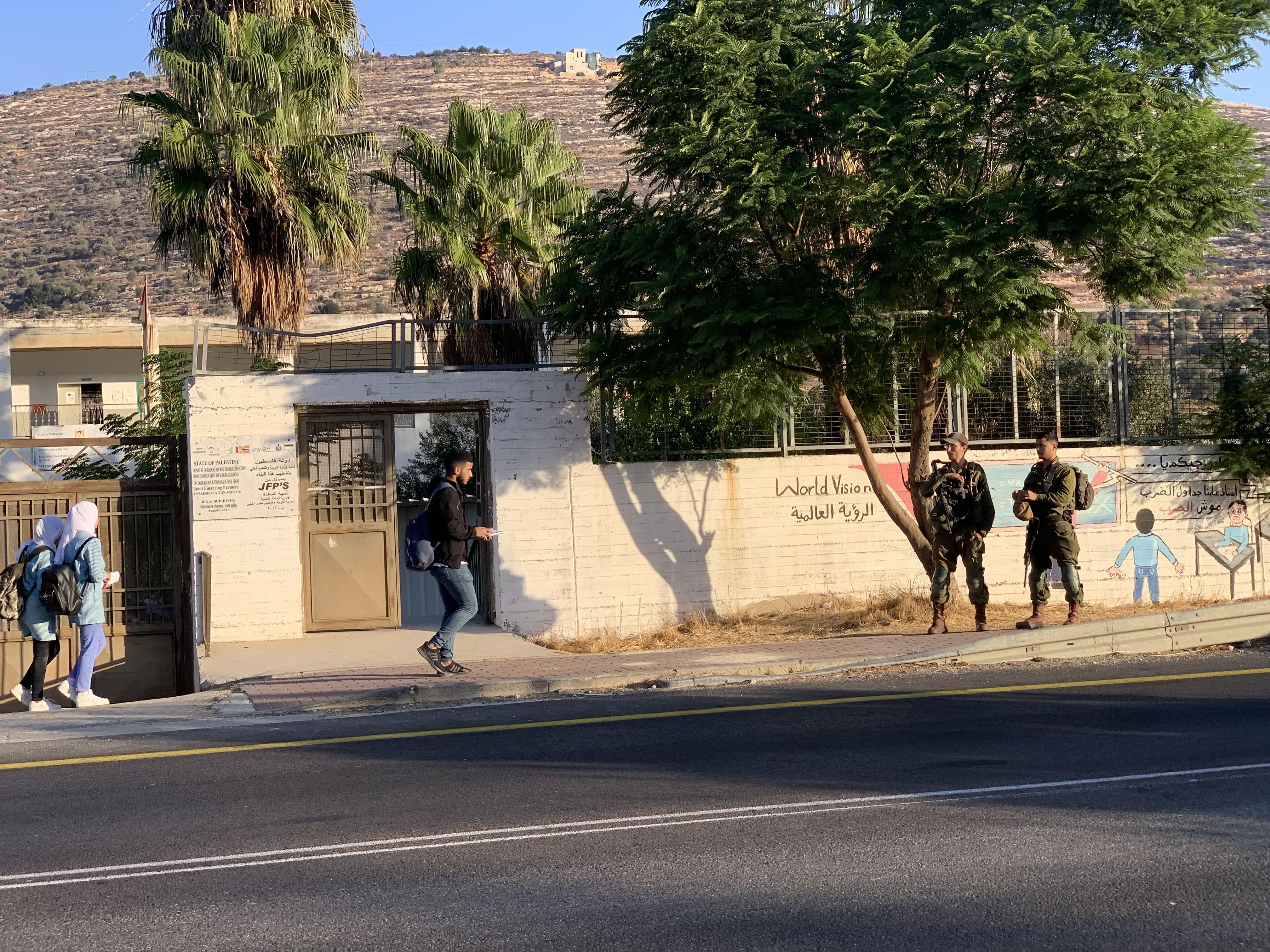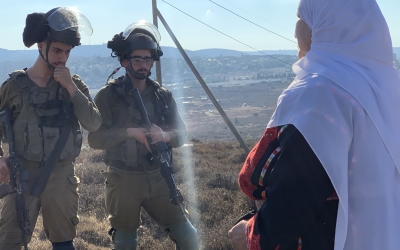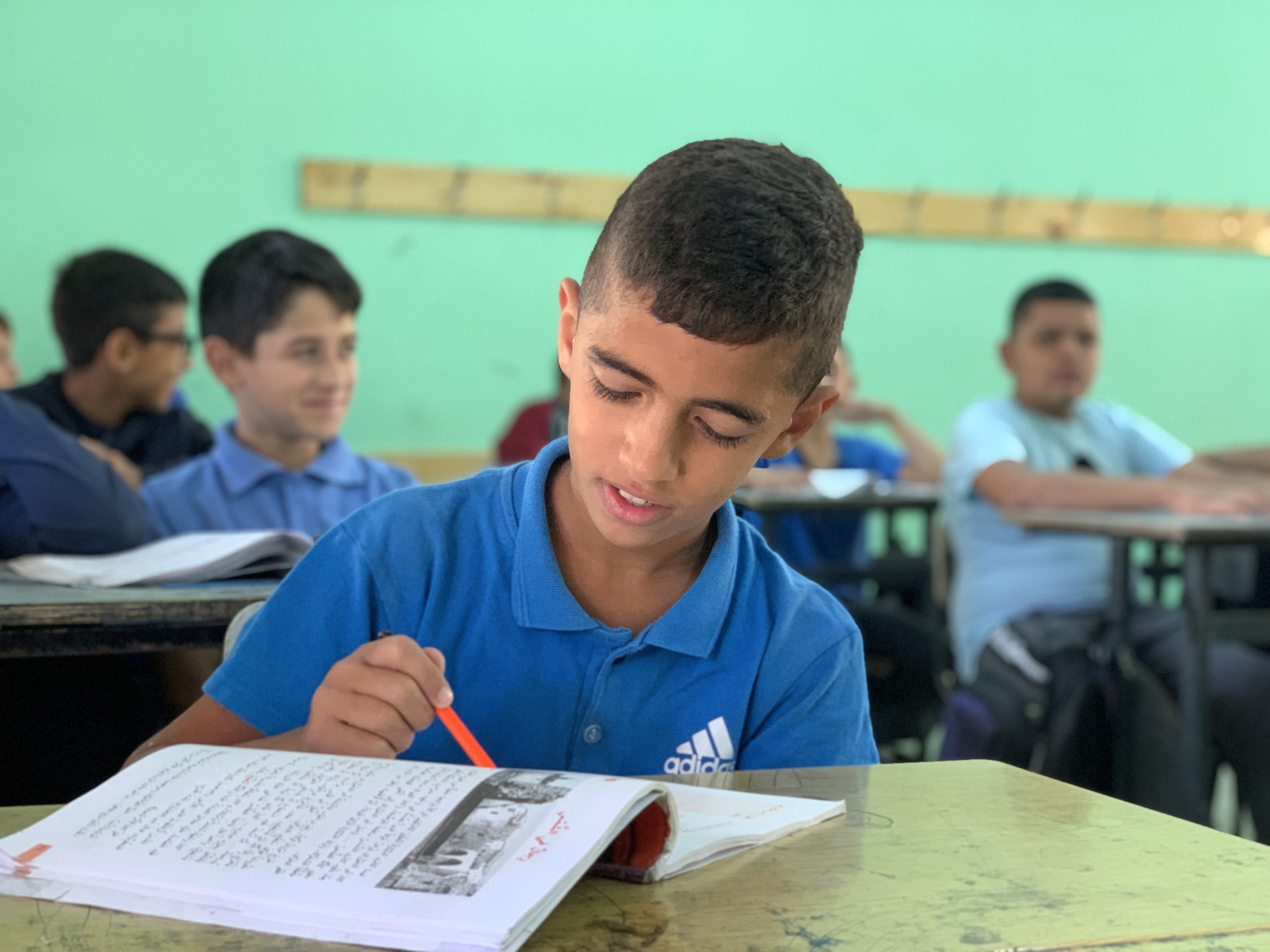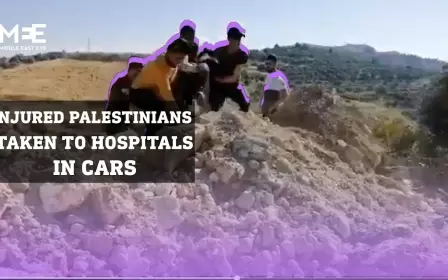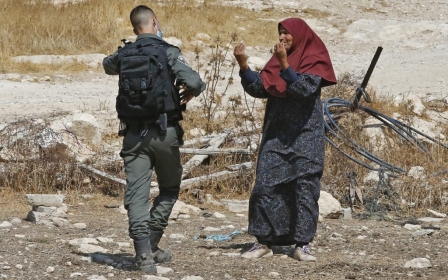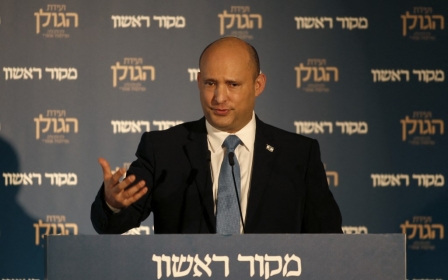West Bank: Israeli army targets school students with arrests, intimidation
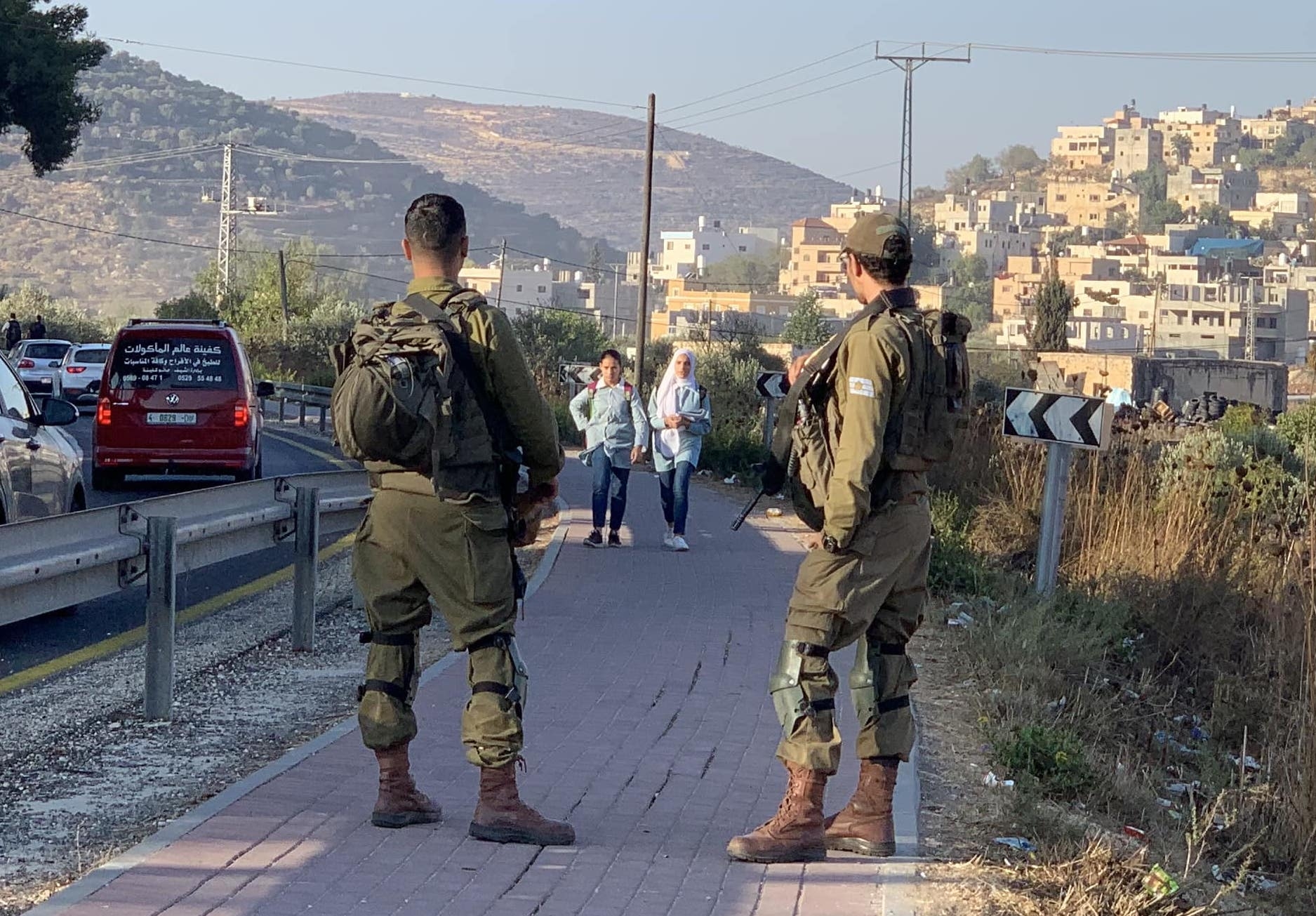
At the school gates of the Al-Sawiya/Al-Lubban Mixed Secondary School, two Israeli soldiers stand with their rifles, while a number of troops line the sidewalks of settler highway 60, the only road that leads to the school.
This is the daily reality for 420 Palestinian students from the villages of al-Sawiya and Lubban al-Sharqiya, south of the occupied city of Nablus. Schoolchildren are detained, arrested, persecuted and intimidated on a regular basis, while at times their school has been raided by the army, attacked with teargas bombs and even shut down completely.
Since the start of the school year in September, the Israeli army's assaults on the students have risen. Over a period of close to two months, 15 students were arrested, some detained for several hours, while others spent several days in detention.
The Israeli army claims that its heavy presence around the school is to help reduce the incidents of stone-throwing at army or settler vehicles on the road.
New MEE newsletter: Jerusalem Dispatch
Sign up to get the latest insights and analysis on Israel-Palestine, alongside Turkey Unpacked and other MEE newsletters
Al-Sawiya/Al-Lubban is one of the oldest Palestinian schools in the area.
It was established in 1944, on an area of 42 dunums (4.2 hectares). It includes an outdoor playground on an area of 12 dunums, which the school is prevented from using, under the pretext that it is located in Area C of the West Bank.
Escalating attacks on the school
Jaafar Fadi Balouta, 13, walked quickly with his friend between two soldiers blocking the narrow pavement.
"We pass by this road every day, full of soldiers, and there is no other alternative for me to take,” Balouta told Middle East Eye. “Soldiers accuse us of throwing stones, and they are all around this area during the morning hours and when we leave the school."
'The army targets this age group with the aim of terrorising them and deterring other children'
- Yasser Ghazi, school principal
Balouta, who dreams of becoming an engineer, said: "There is not a day when we are not afraid of coming to school. We come here to learn - this is our right - and we want it like all the students in the world.
"I often think that they might close our school and deprive me and the rest of the students from continuing our studies and achieving our dreams,” he added.
Yasser Ghazi, the principal of the school, told MEE that the school has witnessed assaults by the Israeli army since the building of settler route 60. Over the past three years, and particularly this year, the frequency of attacks on the school has risen, said Ghazi.
He said in addition to the heavy presence of soldiers on the road, the school is “exposed to other types of daily attacks, such as raiding of the school, assaulting students and staff, in addition to the detention and arrests of students.
“All of this has become part of the daily life we live in the school,” Ghazi said.
He explained that the army targets students aged 12-14 for arrest, often refusing to release them until their families pay heavy fines. "The army targets this age group with the aim of terrorising them and deterring other children."
Husam Muayyad, 12, was arrested on 6 September while on his way to school in the morning. He told MEE soldiers accused him of trying to throw stones.
"I was eating chips, some of which fell to the ground. I wanted to collect them, when the soldier approached and arrested me.
“The principal and the teachers came and tried to prevent the soldiers from arresting me, but about nine soldiers came quickly, arrested me and quickly ran with me,” said Muayyad, adding that the soldiers subjected him to a field interrogation.
“At that point I thought that they were going to take me to prison and that I would never come home. I became even more afraid,” he continued.
Hossam's detention lasted for about five hours. He was released after school ended.
“They asked me who was throwing stones and wanted me to give them the names of my friends,” said Muayyad about his interrogation. “The soldiers obstruct us, mock us and chase us until they provoke us and find an excuse to arrest us."
'I was eating chips, some of which fell to the ground. I wanted to collect them, when the soldier approached and arrested me'
- Husam Muayyad, 12-year-old student
The 12-year-old explained that he no longer takes the main road to the school, choosing a more difficult and longer path instead so as not to see soldiers.
“The daily suffering of school students is mainly reflected in their mental state and their scores,” said Ghazi.
“The difficult daily reality they live in prevents the school from being a safe and healthy place, both physically and psychologically.
"The students pass daily among the soldiers' guns... imagine how this affects their mental health, how it is when they are actually arrested and beaten up."
The principal said that at the beginning of October, Israeli soldiers closed the main school gate, closed the street completely, and prevented students from reaching their school.
Besieged by settlements
The reality of the school reflects the reality imposed on the village of Lubban ash-Sharqiya, where about 4,000 Palestinians live.
Yaqoub Owais, head of the village council, told MEE that the school’s “strategic location” on a road built to serve the nearby settlements means that the army considers it a “security zone” and therefore “carries out daily attacks in an attempt to keep us away from it.”
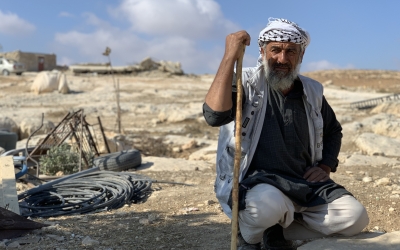
Owais said that the school is besieged in a way similar to that of the village, surrounded by the settlements of Ma’ali Levona, Aliyeh, Shilo, Makhleb Ariel, Neve and Rehelim.
"We are trapped in the middle of a huge settlement bloc. Our lands are stolen daily, and we are subjected to cutting and burning of our trees every day,” continued Owais.
Ihab Tahseen Qat, a field director within the Directorate of Education in the south of Nablus, told MEE that the Lubban Ash-Sharqiya school is one of 15 in the Nablus governorate that are subject to daily attacks by the Israeli army and settlers.
Qat said the schools are located in "hot spots" due to their proximity to settlements, settler roads or checkpoints.
These include the Burin mixed school located near the settlement of Yitzhar. The settlement seized some 20 dunums of school land three years ago and is under constant attacks by settlers.
'Students whose schools are subject to frequent attacks, and live in a state of fear, tension and careful anticipation, suffer from absent-mindedness and poor concentration'
- Ihab Tahseen Qat, Directorate of Education south of Nablus
In addition, the Khirbet al-Tawil school in the Aqraba area is constantly being evacuated due to military training for the Israeli army in the area. And, the co-ed school in Yanun village is prevented from expansion due to being surrounded by settlements. The army prevents the school from carrying out many activities, while there are continuous efforts to seize the land.
“Students whose schools are subject to frequent attacks, and live in a state of fear, tension and careful anticipation, suffer from absent-mindedness and poor concentration, as well as weakness in their scores,” said Qat. “It also leads to many students dropping out of school.”
“Our children go to school in the morning carrying their notebooks and pens. Therefore, we ask the whole world to intervene for them to obtain their right to education, a right guaranteed by all international laws and norms.”
Middle East Eye delivers independent and unrivalled coverage and analysis of the Middle East, North Africa and beyond. To learn more about republishing this content and the associated fees, please fill out this form. More about MEE can be found here.


